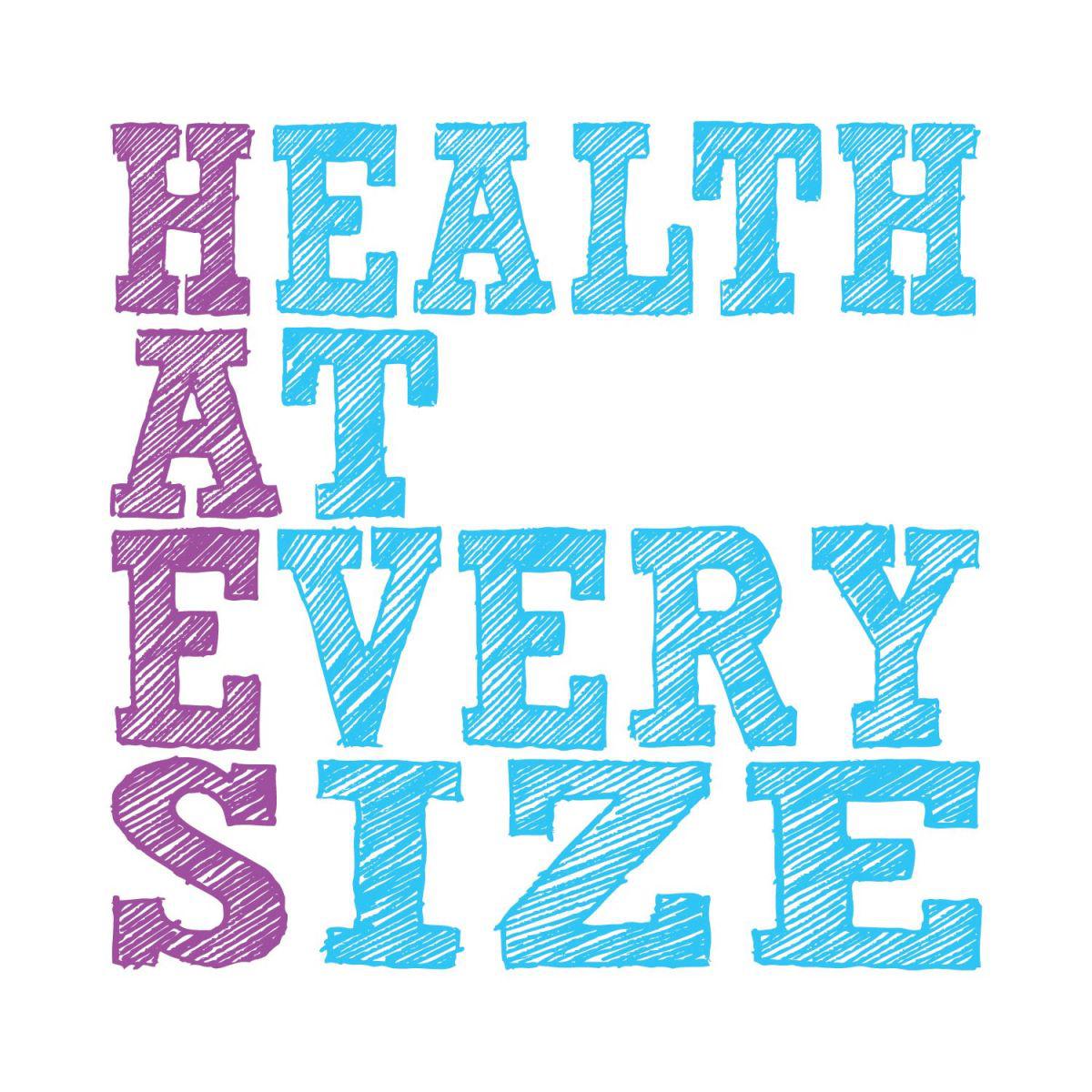
Glenys Oyston
Dec. 15, 2015, 8:39 p.m.

Image Credit: www.peopleofsize.com
Originally Posted on: DareToNotDiet.com
Occasionally, when it comes up in conversation, I’ve heard some dietitian colleagues agree that a non-diet or intuitive eating approach is the best way to help clients achieve better eating habits…unless they’re really “obese.” Then they should probably lose weight “for their health.” These dietitians are not yet wholly committed to Health at Every Size - HAES®.
So I want to be very clear: I do support rejecting a weight loss mentality for all people…even if they’re fat.
(Note: I’m going to use “fat” rather than “obese” or “overweight” because it is the word preferred by the size acceptance movement)
I’ll say it over and over – the evidence on weight loss is pretty conclusive: while most people can lose weight in the short term, almost everyone (between 90-95%) gains the weight back and often even more somewhere within 3 to 5 years (and definitely by 10 years) after the initial loss. No one is sure of the exact figure that is reflective of diet failure because most weight loss studies do not study participants for longer than two years. Even Weight Watchers, who could easily have access to all their clients’ data and could track weight loss and gains for many years (I was a member for 16 years, and I know I’m not the only one), has not studied people beyond two years (after which participants lost an average of 5 pounds).
The other thing we know is that health is not dependent on body weight. We know now (and have actually known it for years) that fitness and other healthy behaviors contribute more toward health than body weight. Sadly, most studies that examine body weight don’t account for eating habits, fitness, and social stigma when they claim that fat is bad for you. So there are lots of confounding factors that could be contributing to poor health in fat people – but instead of looking at those more closely…nah, we’ll just blame the weight.
Telling a fat person to go on a diet is most likely to have one outcome in the long term: more weight gain. And I’m guessing that is the exact opposite of what anyone on any diet hopes for.
Therefore, I don’t advocate one set of rules for thin or normal weight people (for example, intuitive eating and not dieting) and another set of rule for fat people (i.e. weight loss diets, dietary restrictions, and extreme, unpleasant exercise). That’s called a double standard and it’s bullshit, and it doesn’t even work.
So…
I support an intuitive eating approach for all people…even if they’re fat.
I support eating salads sometimes and pizza other times for whoever wants to…even if they’re fat.
I support eating dessert for anyone who chooses to…even if they’re fat.
I support any kind of pleasurable movement for people even if it doesn’t make them break a sweat…even if they’re fat.
And I support respecting your body and treating it the best you can…even if you’re fat.
Health at Every Size® is not trying to say that every person is healthy at every size. It does mean that whatever size you’re at right now, you can begin your journey to health using a weight neutral approach. If one set of behaviors are healthy for one set of people, why wouldn’t they be healthy for all people?
Check out this excellent video by ASDAH that perfectly explains the madness around the weight loss paradigm – using poodles!
Glenys Oyston, a registered dietitian in Los Angeles, is the author of the blog Dare To Not Diet and one of the hosts of the podcast Dietitians Unplugged. She has been dedicated to non-diet nutrition since 2010 when she had the great luck to attend a nutrition class taught by Dr. Linda Bacon, author of the book Health at Every Size. She writes and talks about breaking free from dieting and food obsession, intuitive eating, weight stigma and body positivity. You can contact Glenys via Facebook: https://www.facebook.com/DareToNotDiet, or on Twitter: @GlenysoRD.

Sept. 22, 2017, 8:02 p.m.